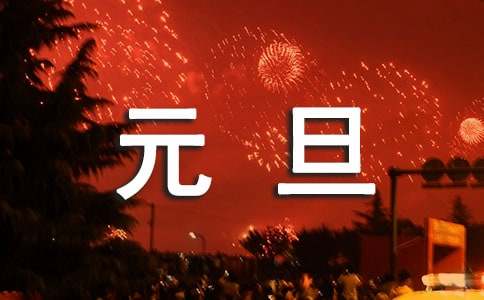英語元旦手抄報(bào)
New Year's Day is the first day of the lunar calendar. it is the day when the earth has circled the sun for one round and is beginning another circling. it represents a new beginning when people send off the old days and welcome the new ones. as the first day of the year, yuandan has been considered to be the most important festival since the ancient times.

kaisui(beginning of the year): according to the chinese traditional custom, starting from haishi(9p.m. to 11p.m.)of the last evening of the twelfth lunar month, each family must prepare offering s to deities at the altar. at the same time, they too prepare food for the new year day: the whole family will then stay awake together to attend to the year(called shou sui). after haishi, zishi(11p.m. to 1a.m.)will come, and this is the arrival of new year(yuandan). at this moment, people begin the celebration with fireworks. vegetarian and sweet foods will then be placed are the altar for offerings, and incense be burned to welcome the deities. in the ancient times, it was believed that haishi connected the two years and thus was called kaisui.
At the same night, some families will follow the instruction in tongshu and place preparing altar in the direction of the "fortune deity" during the "fortune time" to receive the deity. if the direction of the "fortune deity" is at the "ill position", people will choose to receive "happy deity" or "noble deity" instead.
【英語元旦手抄報(bào)】相關(guān)文章:
新年手抄報(bào)英語內(nèi)容08-23
元旦手抄報(bào)內(nèi)容資料12-27
關(guān)于元旦手抄報(bào)大全10-25
元旦英文手抄報(bào)內(nèi)容12-29
迎元旦手抄報(bào)資料07-01
慶元旦手抄報(bào)詩歌09-23